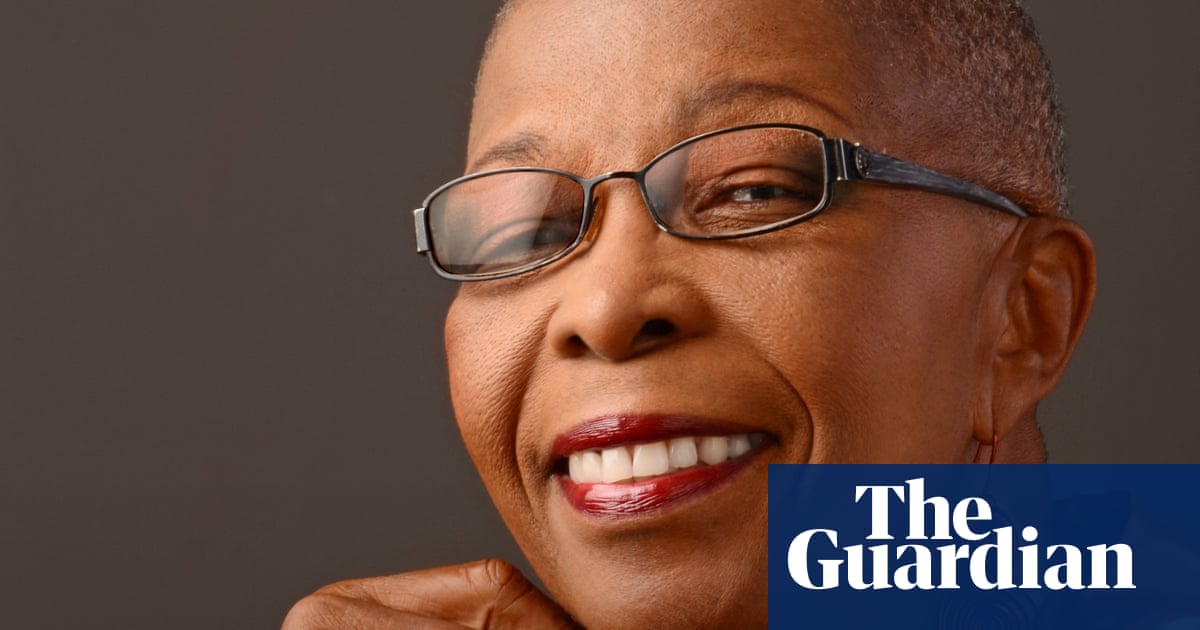Esther Phillips, the Barbados poet laureate, grew up next toDrax Hall Estate, once one of the Caribbean’s notoriously violent slave plantations, where tens of thousands of Africans are said to have died in terrible conditions during the transatlantic slave trade. But she was well into her career when the harsh realities of slavery hit home.
The poet began writing at a young age, and was inspired at first by the “trees, flowers, birds, the smells of the plants or shrubs, the air, the cane fields” she encountered as she walked to school.
But after she attended a lecture about slavery about eight years ago, her writing took a new course.
“I left that place a changed person. I had known, of course, about slavery, but I was presented that night with the facts, but also the statistics – the list of names of enslaved people, some of them 18, some of them 16, 13. I was confronted with the reality of enslavement in a way that I hadn’t been before,” she said.
The experience shifted the focus of her work. The “ultimate goal” of her poetry, she said, became getting justice for those who had suffered at the hands of European colonisers.
A strong supporter ofCaribbean leaders’ pursuit of justice and recompensefor the persisting impact of slavery on the region, Phillips believes her poems can help a modern society, far removed from the raw reality of slavery, to connect with the experiences of those who suffered at the hands of European colonisers centuries ago.
She is on a mission to breathe life into stories about enslaved people buried in archives and obscured by decades of colonial narratives.
“The sociologists, the politicians, they will give you the facts, they will give you statistics. But I think people will very often act not from what they know, but from what they feel, how they feel, what is it that propels you from the inside … That is the work and the realm of poetry – to touch the emotions,” she said, adding that poetry has the power to change views.
The poet,who will speak in Londonabout her work and advocacy on 24 June, is particularly focused on enslaved women, many of whom were forced to endure the trauma of seeing their children taken away and sold to another plantation.
“One of the things that really grieved me, and still does, whenever I think about [slavery] is the way in which we as human beings could be sold … but also how a mother’s children could be sold from her,” Phillips said.
She added: “I’m a mother, and I’m still not understanding it … From the time she’s carrying this child, she knows that the child can be sold. What do you do as a woman? How do you prepare yourself?”
The bitter choice to prepare a child for life as an enslaved person is captured in her unpublished poem Hard Love. An excerpt from the unpublished poem reads:
She must not fetter her son with tenderness.
So she flexes his feet and ankles
to bear the weight of ball and chain;
rubs her calloused hands down the soft skin
of his back to ready him for whippings that will come.
She lets the weight of her arms fall heavy on his neck
as she hugs him; a yoke may be the collar he will wear
In addition to describing the horrors of slavery in her poems, the poet has been advocating for reparations for Barbados, and has written tothe British former MP Richard Drax, a descendant of colonisers, who still owns Drax Hall.
Drax haspreviously saidthat his ancestors’ role in the slave trade was “deeply, deeply regrettable, but no one can be held responsible today for what happened many hundreds of years ago”.
Philips said: “His response was, well, it is truly regrettable, but that has nothing to do with him. My argument is, if you are living off the proceeds, living off the wealth created by your foreparents’ enslavement of people, you are as guilty.”
Enslaved people, who were once voiceless, she said, are speaking through her poems and telling colonisers and their descendants how they suffered.
“You got their labour for free; you used their bodies as commodities; there were times when they were just there to breed and to produce more slaves. You got all of that. You beat them. You raped them. You did whatever you wanted with them, and you got whatever life they had.”
She added: “We are not coming to you, cap in hand, begging for anything … You’ve got free labour for hundreds of years. You prospered from it. You have the wealth that you’re living on. Give the people back what belongs to them.”
